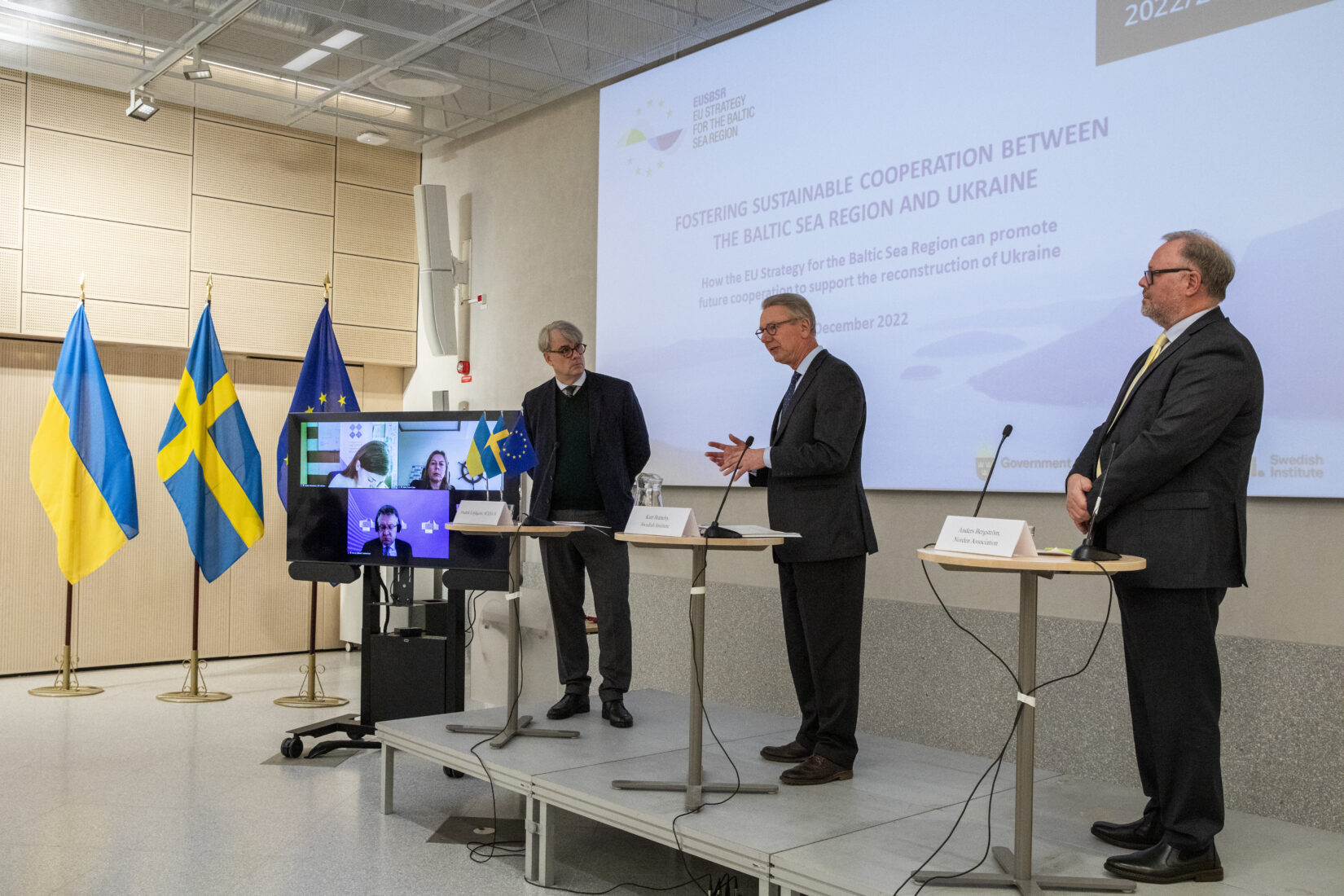The conference aimed to explore how macro-regional strategies, such as the EUSBSR, can promote new sustainable cooperation that include Ukrainian stakeholders. Through the conference, a dialogue was initiated around concrete themes, in line with Ukraine’s needs, where cooperation could be developed.
The morning began with a conference part where approximately 250 people from primarily the Baltic Sea region and Ukraine participated online. Swedish State Secretary for EU Affairs, Mr Christian Danielsson, gave the opening speech. It was clear that cooperation within Europe and in the Baltic Sea region has never been more important.
Mr Ihor Korkhovyi, Deputy Minister, Ministry for Communities and Territories Development of Ukraine, emphasized how Ukraine has played, and will play, a major role in the European security order. The work of rebuilding the country will be costly, but Korkhovyi emphasized the importance of not only talking about a physical one, but also about a reconstruction of behaviors and values – the principles of the rule of law. Korkohvyi pointed to the importance of ensuring that stakeholders at all levels are involved in that process.
The European Commission, represented by Mr Moray Gilland, emphasized the value of involving civil society as well as young people, in platforms where EU actors meet as equals and where also non EU-member states get a better insight into the EU work.
Mr Torbjörn Becker, Director of the Eastern Economic Institute (SITE) at the School of Economics in Stockholm, gave an insight into the discussion regarding Ukraine’s future reconstruction. He also emphasized the importance of maintaining networks and contacts. An example of a network of great importance is the regional network SITE runs, which also includes Ukraine and where SI is one of several funders.
From the Ukrainian side, Ms Nadija Afanasieva, Director of Ukrainian Institute of International Politics, took part and highlighted important areas for cooperation such as energy security, infrastructure, education and security.
Mr Kurt Bratteby, head of the department for international relations at SI pointed to SI’s role as a financier of cooperation in the region in which Ukraine has participated for a long time.
– We have networks in the region which are crucial in this situation. A close dialogue is now required, not least with Ukrainian parties, to be able to meet the needs that exist and thus support the reconstruction of the country, said Bratteby.
In the afternoon, policy coordinators within the EUSBSR organised a workshop on four thematic areas which included stakeholders from both the Baltic Sea region and Ukraine. The workshop resulted in concrete proposals and thoughts regarding continued dialogue and cooperation in distance education, training of medical personnel, circular economy and shipping. The proposals and thoughts that were developed will form the basis for continued discussion and design of cooperation.
Facts:
SI launches the SI Baltic Sea Neighbourhood Programme in which SI provides funding for cooperation between EU countries around the Baltic Sea and countries in the EU’s Eastern Neighbourhood.
